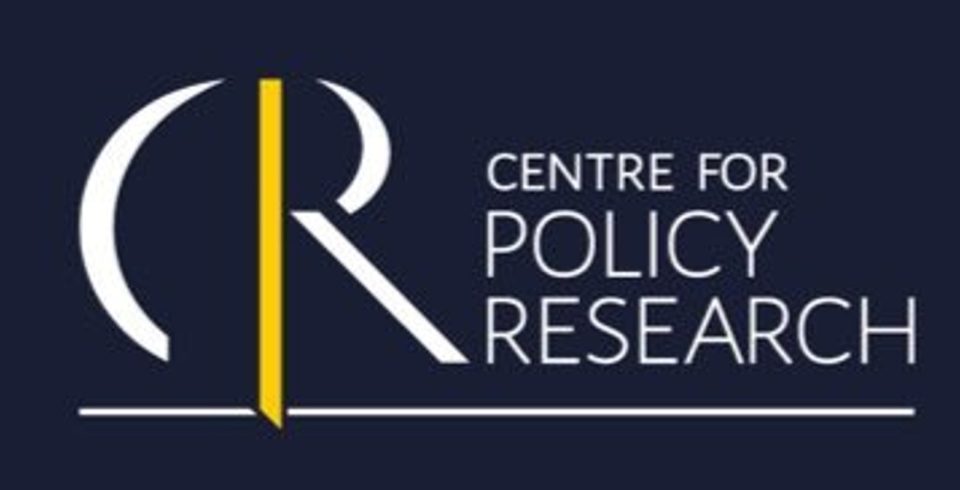
Explained: What did think tank CPR do to trigger an I-T survey?
Survey was part of probe to ascertain if there was any contravention of FCRA by the group,said I-T officials; the accounts are clean and transparent, said CPR

A recent survey by the Income Tax Department on the Centre for Policy Research (CPR) has put the focus on issues like funding, transparency, nature of work and the role of think tanks in the public discourse.
“The survey is a part of a probe to ascertain if there was any contravention of the Foreign Contribution Regulation Act (FCRA) by the group,” said senior officials involved in the investigation during their interaction with the media.
Also read: Congress slams Centre over raids against CPR, Oxfam India, IPSMF
CPR’s recent works
In recent months, CPR has produced reports on upgrading slums in Odisha, regulating urban trees and how the laws are not equipped to deal with rapidly changing urban realities, and democratising the digital space to ensure citizen participation in the governing process.
The think tank, in a major collaborative attempt, tied up with Unicef India to understand the impact of social protection schemes and measures undertaken by the Union government on women and children migrants, particularly those involved in circular and seasonal migration. Spread across five states — Uttar Pradesh, Odisha, Chhattisgarh, Maharashtra and Gujarat — the findings highlight the invisibility of women and children in a labour-centric migration discourse and the need to focus on service delivery in urban contexts.
The ongoing survey
Answering a question on the ongoing raids, Partha Mukhopadhyay, senior fellow at CPR, told The Federal he has no idea about the survey as the investigative body has not clearly laid out the reasons behind it. He was very categorical in his assessment of the investigation as he quickly pointed out that it is a “survey” and not a “raid” as reported by many media houses.
To a separate question on funding, he replied that CPR’s funding mechanism is extremely transparent, with the website clearly mentioning all the sources. The site also provides a full accounting of annual finances and grants, reiterated the scholar.
Also read: Oxfam India: I-T survey team took all data by cloning server, mobile phones
CPR’s response
The group said in a statement that it has done nothing wrong. It added that it holds itself to the “highest standards of compliance.” Sharing the statement on Twitter, Yamini Aiyar, CPR’s President and Chief Executive, said: “We have extended full cooperation to the department during the survey and will continue to do so in future.”
A statement pic.twitter.com/MqMZAEq8Rn
— CPR India (@CPR_India) September 9, 2022
“We hold ourselves to the highest standards of compliance and are confident that we have done nothing wrong. We are committed to working with the authorities to address any questions they might have. We remain committed to our mission to provide rigorous research to policy making in India,” CPR said.
Have recent writings ruffled Centre’s feathers?
More recently, Aiyar was critical of Prime Minister Narendra Modi’s revadi (freebie) culture remark, in a piece for Indian Express. She called the remarks a “thinly disguised attempt to delegitimise welfare announcements by political opponents.”
Perhaps out of all the pieces that were highly critical of government policies, the one on the PM’s Independence Day speech drew maximum attention.
“This emphasis on duties has been an oft-repeated appeal by the PM. I have no quibble with a discourse on citizens’ duties, indeed all citizens are duty-bound. The challenge is in how the terms of this discourse have been framed, casting the government’s obligation vis-à-vis the, citizen not in terms of ‘rights’ but in terms of her being the ‘beneficiary’ or ‘labharthi’ and therefore bearing duties in return for what the government doles out,” expressed Aiyar in a blog post.
Budget and politics in pandemic times
Commenting on the Union Budget 2022-23, Aiyar contended that the emphasis on capital expenditure over welfare in the two budgets announced during the pandemic was a mere continuation of a shift in political narrative toward “market-friendly reforms” that began with the Modi government’s re-election in 2019.
Also read: Oxfam, Jamia, IIT, IMA among more than 12,000 entities to lose FCRA licence
She also argued how severe critical schemes that provide basic public services — education, nutrition, and even the flagship drinking water scheme — have been delayed or reduced spending in the fiscal. Calculations by the CPR’s Accountability Initiative pointed out that until December 2021, only half of the year’s annual budgetary allocations had been released for these key schemes. The Revised Estimates for FY 2021-22 are much lower for many of these critical schemes compared with Budget Estimates at the start of the year.
Survey vs search
Governmental agency officials have clearly defined the difference between a ‘survey’ and a ‘search’. A survey operation is limited in its scope, as the agency visits the commercial premises, usually during the office hours, and can only impound the transaction records for scrutiny and seek clarification from the persons concerned.
A search, on the other hand, is an exhaustive exercise wherein all the locations limited to assessee could be covered and documents cash and valuables seized.
Accountability initiative
The Accountability Initiative has pioneered a new approach to tracking public expenditure for social policy programmes, and is widely recognised for running the country’s largest expenditure tracking survey in elementary education. Aiyar founded the Accountability Initiative at CPR. It has provided significant research in areas of governance, social policy and state capacity.
What is CPR?
According to its website, CPR is a “nonprofit and, non-partisan, independent institution dedicated to conducting research that contributes to high quality scholarship, better policies, and a more robust public discussion about issues that impact life in India”.
CPR receives grants from the Indian Council for Social Science Research and is a Department of Science and Technology recognised institution. It also receives grants from a variety of domestic and international sources.

